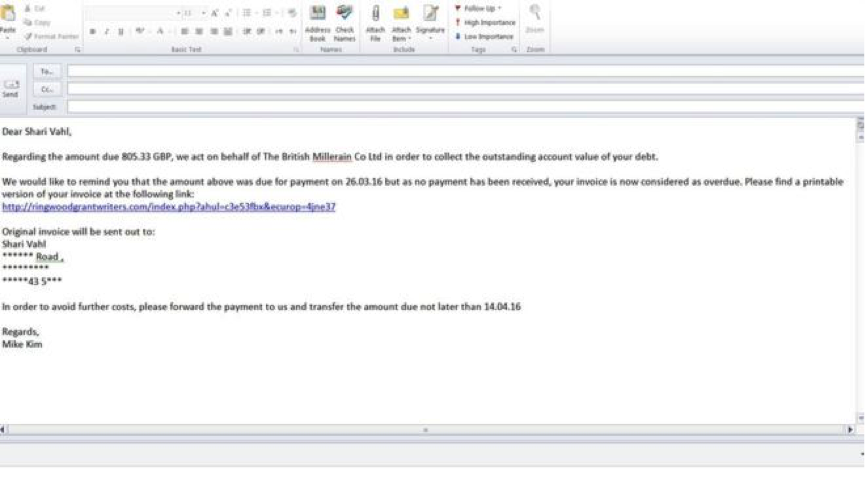
Hundreds of people have received new types of phishing emails which knows the individual’s home address.
Clicking the link in the dangerous email, which as a appears very authentic request to pay an overdue invoice, installs devastating cryptolocker ‘ransomware’ on the user’s computer.
The virus then begins encrypting files, demanding a ransom be paid to unlock the user’s data.
According to the BBC the unconnected company cited in the email, cotton fabric manufacturer British Millerain Co Ltd, have received more than 150 phone calls from individuals concerned that they owe money.
Phishing emails and websites, which typically mimic official bank or company communications to trick vulnerable users into making payments to criminals, are becoming increasingly sophisticated.
The use of an individual’s personal address, and higher quality written English, suggests the original creator of the email has gone to greater lengths to make the email look convincing and to avoid detection.
It is also likely that the matching address originates from stolen, legitimate customer data, accounting for users’ recognition of the way they write their own home contact details.
New threats are constantly developing, and Lineal recommend installing an antivirus software with a strong record of catching emerging online threats – such as ESET.
Always follow some simple rules:
- Never click a link or open an attachment from any suspicious email whose origins you do not recognise.
- Banks and similar will NEVER request your private passwords, pin numbers or other confidential information. Do not disclose these to anyone.
- If hit by cryptolocker style ransomware, every second counts – seek professional technical support immediately.
- Always keep a regular, separate backup of your files.
Photo Credit: BBC News
